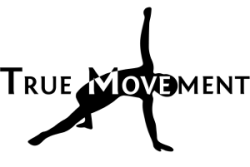Lessons from Ian Waterman
When Ian Waterman was 19, he contracted an incredibly rare disease of the nervous system, which left him completely unable to feel where his body was from the neck down. This disease had destroyed his proprioceptors, the sense organs that signal where the body is in space. There was no apparent physical damage and everything still functioned as it should, but Ian could not feel any of it. In many ways Ian had lost his body.
read moreDefining Good Form
If you talk to almost any trainer, coach, or therapist, they’ll all tell you that good exercise form matters. Good form is designed to keep you safe and move you closer toward your goals, but what is good form? For the purpose of this article I’ll define form as: the way a person looks and feels when performing a choreographed sequence of movements with their body. Defining what makes form good is far less clear.
read moreCandles & Card Games: Navigating the Unknown
One of my favorite things about the health and wellness industry is that each aspect the field has such great breadth and depth that my learning is never done. Since embarking on my journey into the field I’ve made a point to study at very least 1 hour a day, often devoting 5 plus hours to my education and foolishly foregoing sleep in some marathon knowledge binges. Yet despite what I would consider a wide knowledge base, there are very few things I am certain of.
read moreBig Rocks Build Your Foundation
In high school I had a great technology class where I was assigned to construct a water filter using no more than $2.00 worth of supplies inside an empty soda bottle. I learned that the way to build a good filter is to sort the waste from the water from largest to smallest. The top of my filter was filled with large rocks, then gravel, then coarse sand, fine sand, and finally a cheese cloth at the bottom near the spout. Remarkably, the sludge-looking water the teacher prepared came out looking clean* from my filter.
read moreCrossfit: the Good, the Bad, and the Ugly
If you want to be polite company at a dinner party it’s usually best to avoid emotional and polarizing topics like politics, religion, or Crossfit. Crossfit regularly sparks fiery debates in people that are similar to the level of intensity seen in discussing closely held beliefs. If you’re prone to getting angry from reading something that differs from your world view, then avert your gaze and find something that gives you a good laugh because you really need to lighten up.
Before moving forward I must say that the following is based strictly on informed opinion and anecdotal evidence. There is next to no research on Crossfit and the research which does exist is of questionable quality, so I will have to work with the information that’s available. I have my own personal biases, but I will attempt to be as objective as possible with my analysis.
read moreA Multidisciplinary Approach
“What kind of trainer are you?” This was the question the large man sitting in front of me kept asking. A bit over a year ago I was interviewing for a trainer position in what was listed as a “medical office” in the ad. Entering the office I saw a wide variety of posters and pamphlets all claiming miraculous results using long-debunked (and even some dangerous) ideas. It turned out this was not so much a medical office as it was a quack’s office. Going into the room to interview I was already very put off by my recent discovery, but I tried to make the best of the situation.
read more

